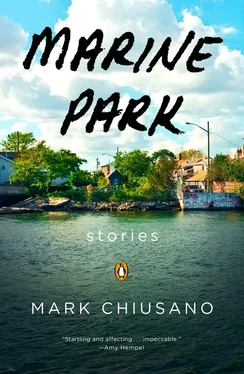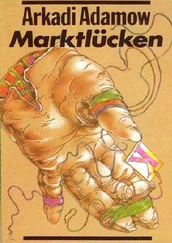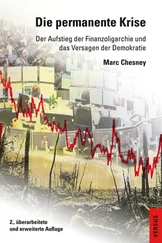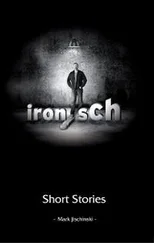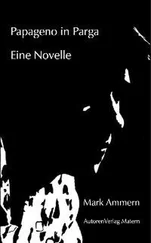They had lived alone together for many years, since their sons moved out to get married. It was a house on Madoc Avenue, where the backyard opened onto the water, and a wooden dock extended from the porch out into Dead Horse Bay. In the summers they left their motorboat there, the Napoli , and they’d take it up and down the canal, past the salt marsh, its high grass and swampy inlets, sometimes all the way out to Rockaway, under the Marine Parkway Bridge.
They weren’t rich and they weren’t poor, although when Vincent turned sixty-five their children, Tommy and Salvy, threw him a surprise party and sent a check for five hundred dollars. Aurora wanted to rip it up. Vincent collected Social Security and she had always saved her earnings, from working at the voting polls at PS 222 for decades. Democrat or Republican? she’d ask, and hand them a white sheet or blue sheet. This year it was Bush and Clinton. Vincent had had his candy store, but then he’d sold it to the Benduccis. At Christmas, they always had a live tree.
The house was painted white, with little flecks where tree branches had kicked off color during storms, and a flat roof that the kids liked to go onto when they were teenagers. Once Vincent found cans of PBR in the gutter when he was cleaning out the leaves, and he sat his sons down to talk to them more about their indiscretion than anything else. It surprised them, his sudden sharpness, all the more so when they found that he wasn’t angry about the beer. Who hadn’t tried to get away from their parents on a summer night, the breeze coming off the water, the sky clear to Manhattan, Vincent had put it. He understood. But where he was raised, in Carroll Gardens, with the Irish cops, you had to be more careful — and he wanted them to understand this, to take a certain amount of care. He didn’t tell Aurora about the beer.
It was a row house, connected to other houses on the side, differentiated from a suburb, though you’d be hard-pressed for what to call it. Marine Park was the part of the city, Aurora often said, least served by the train and bus system. If the oceans rose like people said they would, this part of Brooklyn would be the first to go. It was an hour with the walk to the Q train and the ride into the city to see a Broadway play, or to go to the Museum of Natural History, which meant lower real estate prices and a bit of sleepiness. One neighbor was a drug addict, supported by unknown funds. There was the neighborhood drunk, who was in and out of the house. Across the street the eldest son of a large family — who marked his adolescent growth year after year with new tattoos, sprouting in strange places across his body, reported one after another by a gleeful Tommy, who knew him from school — was gone one day after the Fourth of July: two years in jail. Their true neighbor, just to the left, shoveled snow for them if they woke up too late in the morning. He lived alone, and needed neither conversation nor pleasantries. He’d taken in their mail when they went to Canada for a week, years before. They stayed in Montreal, and then a few days in a cabin next to Lake Oromocto, where Vincent had gone fishing in the mornings and Aurora spent a small amount of time depressed on the back porch, then getting better in the afternoons, making penne vodka and a salad. When the children were born they did not travel.
When they were younger Vincent spent most of the day at the candy shop. Aurora stayed home. Besides the poll work, she mended clothes and tailored suits. For Halloween season she made the kids’ costumes from scratch. Salvy especially had liked to watch her sew, and for a while she got him interested in it, sewing his own moccasins like the Lenni Lenape Indians — who had lived right where their house was, she told him, those very blocks. They’d had a permanent settlement, and sometimes people found bits of wampum under the dirty sand by the water, and Salvy liked to dig for them and bring them back to Aurora, who had an open fascination with history and geology and the way things got buried and preserved.
Tommy was more Vincent’s son, even though when he grew up he became a banker, and after school he would go straight to the candy store on Ocean and Twenty-Sixth. Tommy would scratch the top of his head against his father’s lips and then hide in the comic book section. He liked to stand by the turning pedestal of greeting cards and write obscene things inside them when Vincent wasn’t looking, and once this got Vincent into trouble, when a customer came back with an anniversary card in his hand and loosened his jacket to show the.22 on his belt, sticking his tongue into the corner of his lip. That was after Korea, after returning soldiers had gone to the Fire Academy or cop school and moved in droves to their neighborhood in Gerritsen Beach, and sometimes they forgot they weren’t in Pusan even though it was years ago.
Tommy and Salvy still came to visit a few times a month. Tommy came every Sunday. The boys came in their sports cars with Italian bread and cookies from a bakery on Smith Street, where Aurora used to go for lemon ices. Salvy had married a Russian girl, but Vincent and Aurora didn’t care, as long as the wives helped out with the dishes between courses. In the kitchen Aurora labored over sauce. Vincent had once been a heavy drinker, but now he was happy with two glasses of pinot grigio at dinner. The wine enlivened his senses a little, then dulled them. He didn’t think there was anything wrong with this. From where he sat at the head of the table he could see Aurora, her hands folded in her lap if she wasn’t taking bites. She cleared the table; he did the dishes. The boys and their wives left. She sat in the living room and had the TV on, though she wasn’t really watching, more like meditating. The sound of the faucet drowned out the rest of the day. In the kitchen, it was Vincent’s daily ritual, his back turned to the rest of the house and his attention focused on the white wall in front of him, the metal sink. He washed dishes slowly, one after the other. If he let the wine glass sit without washing it, the dry dregs grew crusted, stuck on the side of the cup.
• • •
One evening, not long after Vincent’s sixty-fifth birthday, he got a phone call, the first of its kind in a while, late at night when Aurora was upstairs reading a biography and he was half-asleep in front of the television. It was large and monstrous, sticking out hideously into the center of the room, but the boys had bought it for them, Father’s Day that year. Vincent wasn’t used to how real it sounded, what a presence it was. He had thought the phone call was coming from the TV.
He walked over to the kitchen where the family phone was attached to the wall, flicked the kitchen light on, and picked up the receiver. When he did, he heard in the background the oddly amplified sound of waves lapping. Along with the static of the connection, it was strangely familiar, reminiscent of something that made Vincent’s fingers start tapping on the counter.
Use the other phone, Vin, the voice said. Three minutes.
Vincent hung the phone back up on the wall and sat down slowly on one of the kitchen stools. He looked at the scratches made on the table from the bottom of the coffeemaker that they used every morning. He traced the scratches with his nails. Then he walked over to the refrigerator and poured himself orange juice.
When he finished every drop in the glass, the light coating of pulp still on the upper half, he went back into the living room and sat in his recliner, his corner of the room where Aurora never cleaned. He turned the volume on the television up. Then he reached under the seat cushion and pulled out a mobile.
Before the news went to commercial the mobile began to beep, and he pressed a button with his thumb and held the phone up to his ear.
Читать дальше
